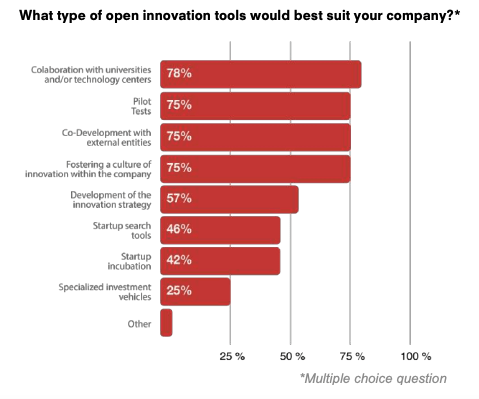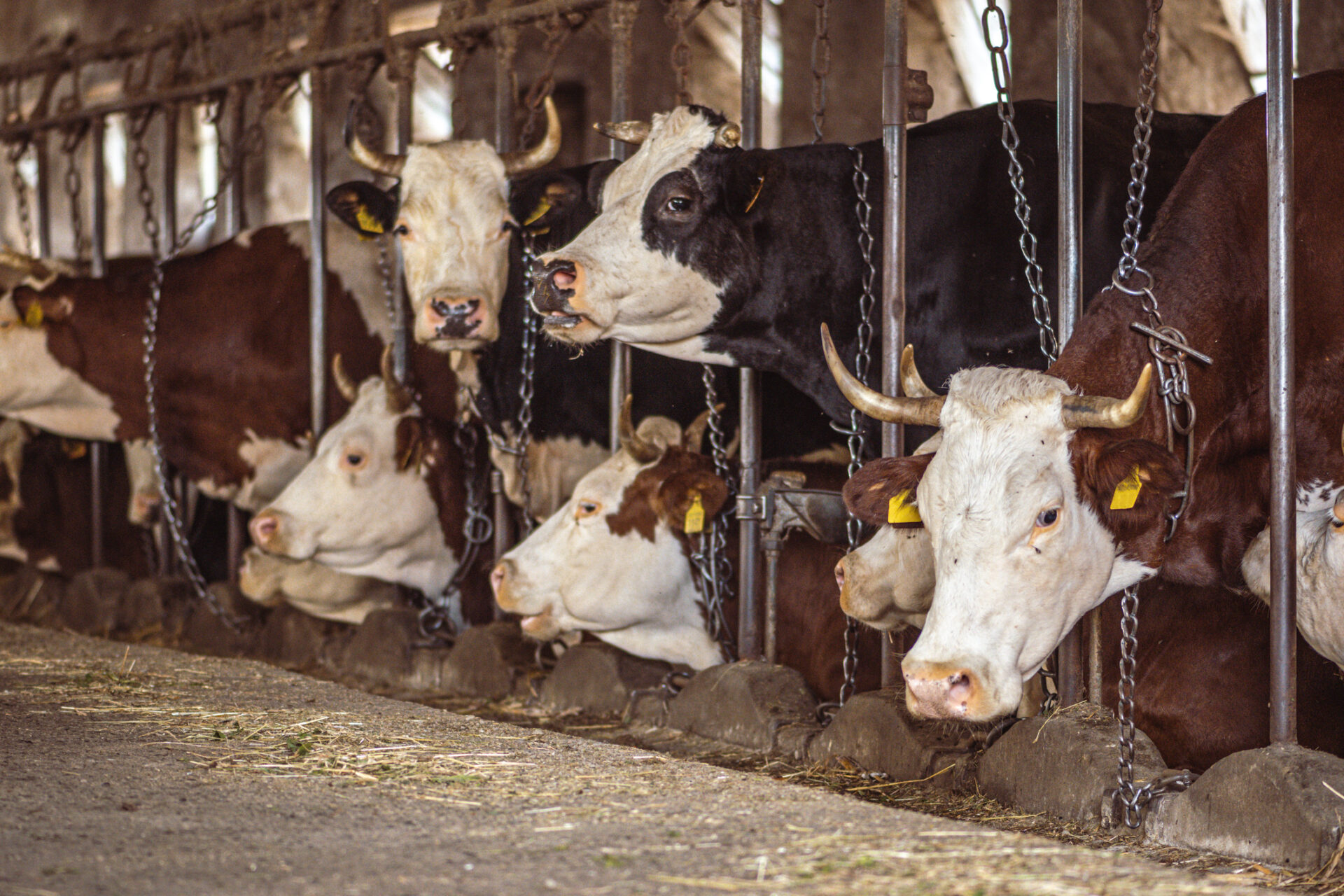Open innovation at large agrifood corporations is on the rise but companies are more interested in engaging with academic and research institutions than startups and entrepreneurs, according to a new report from Spanish innovation platform Eatable Adventures.
Open innovation is where large companies engage with external groups to foster more innovation in-house and remain competitive. According to Eatable Adventures it is “increasingly gaining momentum as a way of capturing talent, technologies and new business models, as it has the power to transform organizations.”
The report surveyed 43 companies from Europe and the Americas, 86% of which said they were willing to invest more in open innovation in 2023, with some 93% planning to invest in the next three years. But if you’re a startup hoping that means some money could be coming your way, think again: over 90% said they collaborated with universities and research centers versus just 50% who have gone the startup scouting route. Furthermore, just 25% have directly invested in startups and 17% incubated them.
While this might seem disappointing to entrepreneurs out there, the report authors noted: “It is important to highlight that search, direct investment and incubation of startups, despite not being the main ones, are present among the options chosen and are growing in prominence, forming part of the real set of tools used by corporations.”
This was also a multiple-choice question so respondents were able to select more than one response.
When asked a similar question, the results still leaned toward academia and research as the most suitable avenue for open innovation efforts, although the somewhat ambiguous “pilot tests” option may indicate startup engagement.

Other key insights
- The companies rated themselves 7.5 out of 10 on being innovative and 9.5 on the importance of innovation to their growth.
- The 43 medium and large ag businesses interviewed said they invested in innovation between 2020 and 2022 and their decision to innovate was independent of turnover or size.
- 70% of their overall innovation comes from external sources
- Corporate innovation is largely focused on product development as opposed to processes and business models. The latter got the least focus as an area of innovation.

What does this mean for the agrifoodtech sector?
There’s a clear need for open innovation in the food industry due to the growth of a more critical and aware consumer base and the report strongly points toward a willingness for food companies to take up the innovation mantle.
As with most companies in our current food ecosystem, the surveyed ones are aligning themselves with the 17 UN Sustainable Development Goals. Over 75% of them are looking towards innovations that foster sustainability and promote human and environmental health.
Sustainability aside, food companies are also channeling their innovation efforts into developing new sales channels due to changing consumer behaviors and developing food traceability for transparency purposes.
Eatable Adventures believes open innovation could transform the agrifoodtech industry. Further, companies with a focus on collaborative innovation reduce the risk associated with innovation through risk sharing
According to Eatable Adventures, “Investing in innovation is SMART. It was already necessary, but it is even more important considering the changing times we are living in, which require great adaptability on behalf of the companies.”
Scope of the research
Some 49% of respondents were European companies, 29% North American while 19% were Latin American.
Included among them were top food companies that have launched various open innovation vehicles in collaboration with Eatable Adventures:
- Europastry, a company from Barcelona touted to be the fifth largest producer of frozen dough for the global bakery market.
- Pascual, a leading producer of dairy products headquartered in Spain. Its open innovation arm invested in two precision fermentation startups in 2022.
- Alianza Team, a Colombian B2B company that produces lipid-based solutions also launched its open innovation facility called Albora in 2019 to foster startup collaboration with the food industry.
- Mahou San Miguel, a leading brewing company based in Spain, launched BarLab Ventures in 2022, to support open innovation projects in the brewery sector.
- Sigma Alimentos, a Mexican food processor and distributor with operations across the Americas and Europe.
Read more on the state of open innovation in the agri-food sector 2022 HERE.
Source link
Author Lucy Ngige





